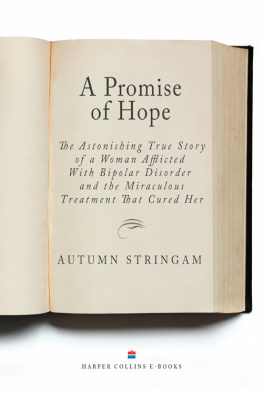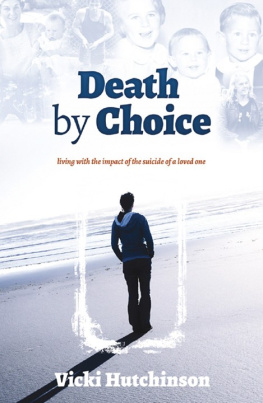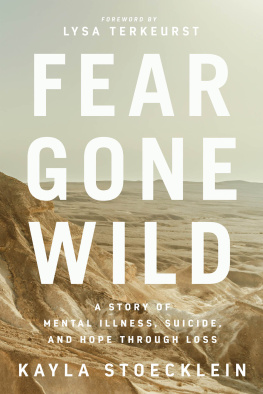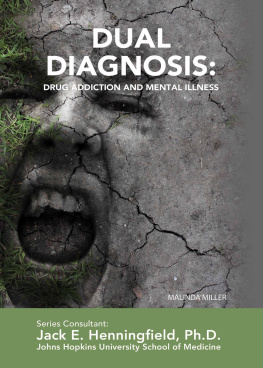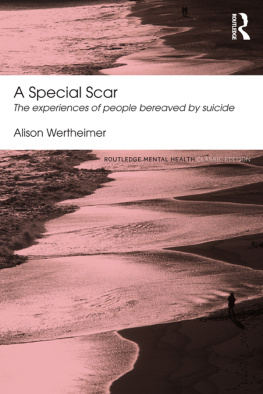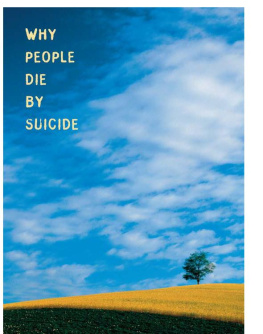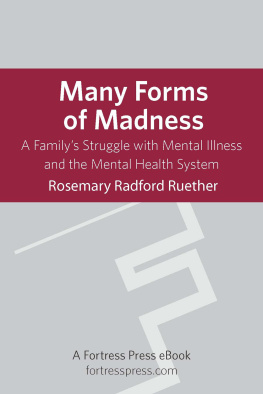First published by Soul Rocks Books, 2016
Soul Rocks Books is an imprint of John Hunt Publishing Ltd., Laurel House, Station Approach, Alresford, Hants, SO24 9JH, UK
www.johnhuntpublishing.com
www.soulrocks-books.com
For distributor details and how to order please visit the Ordering section on our website.
Text copyright: Natasha David 2015
ISBN: 978 1 78099 584 7
Library of Congress Control Number: 2015954280
All rights reserved. Except for brief quotations in critical articles or reviews, no part of this book may be reproduced in any manner without prior written permission from the publishers.
The rights of Natasha David as author have been asserted in accordance with the Copyright, Designs and Patents Act 1988.
A CIP catalogue record for this book is available from the British Library.
Design: Lee Nash
Printed and bound by CPI Group (UK) Ltd, Croydon, CR0 4YY, UK
We operate a distinctive and ethical publishing philosophy in all areas of our business, from our global network of authors to production and worldwide distribution.
This book is dedicated to my family and friends for their unfailing love and support. To Julie-Anne, my sister-in-arms. To Ian, who inspires me to pursue my best self. To Angela, who showed me what self-belief can accomplish. To Lyn, who encouraged me to write for myself.
And to Kevin, ultimately my greatest teacher.
Prologue
The Inspiration
Writing about a personal relationship is hard, made even harder in this case. The decision to do so was not made lightly. I had to overcome my natural unwillingness to look at my life during this period; my own guilt and self-doubt are contributing factors to feeling blamed for the eventual demise of my husband to suicide. I blamed myself for the inability to encourage him enough to seek treatment for what was, looking back, an obvious mental illness that was untreated far too long.
My motivations for writing this book are threefold. Firstly, in doing so, I am finally tackling head-on some major life events that happened to me and my late husband, some of which have never been disclosed outside our marriage.
Secondly, if people suffering from a mental illness feel invisible in society, their carers go even more unnoticed; usually they are the ones who cheerfully paint their faces with a smile and continue being strong, the rock of their relationships, until their strength gives out. The thought that someone, somewhere, might benefit from reading what we went through and feeling that much less alone because of it, is a driving factor for me to open up a very difficult chapter of my life.
Finally, I still hold a special place in my heart for my late husband who in many ways was a very beautiful person trapped by his past and an illness he didnt want to accept, who believed his fragility was something to deny. This is his story, and he deserves to have it told by someone who was the closest to him for the last decade of his life.
As this person, I feel privileged to have heard his stories, his version of events growing up, his attitudes and outlooks, what he went through, all those wonderful, funny, sad, tragic, mishmash of events that contributed to his makeup and life. I had an up-close and personal view of someone who battled with, and lost to, a mental illness.
It is also a daunting task because mental illness is still such a taboo subject, despite progress being made since my husband was first treated for a psychotic episode. People who are afflicted by it, live with it, love people who struggle with it, are still made to feel ashamed by both societys attitudes and also a health system that doesnt prioritise their needs to the same extent that they would if suffering a life-threatening illness such as heart disease.
People who suffer from these illnesses are made to feel doubly wrong. Both for having the illness in the first place, and then behaving in ways that they sometimes cannot control when they are in its grip, leaving many unable to engage in normal, healthy, active and full lives. My husband was one of those who struggled in this regard, and felt like a failure many times because of it.
It makes sufferers less willing and able to fight to get accurate diagnoses in the first place, access ongoing, affordable treatment, and work with professionals to access strategies to help them reintegrate as quickly as possible back into society after a critical event may have taken place. I saw this firsthand.
I hope that readers can look past the drama of the events about to unfold, and see the message underlying each chapter. Denial is never the solution to any problem, large or small. Within any relationship and especially for those who need more care and attention for any aspect of health, burying heads in the sand will only further contribute to the problem and add stress to families and social networks.
Seeking help, as early as possible, being open and honest about the pain we are all feeling at one time or another, is the answer.
Love, compassion and acceptance can all start within each and every one of us. If we can all do that within ourselves, this world will achieve the peace wed like to experience in this generation and for generations to come.
Chapter One
The Beginning
I picked up the ringing phone at my office with a distant view of the city haze on the far horizon. It had been a busy day, typical of the hustle and bustle that went along with putting together a monthly magazine.
The voice on the other side of the line was instantly recognisable, although distant and halting.
Im calling to say goodbye.
The words sent a chill through my spine.
What do you mean goodbye?
Silence on the other end of the phone, but I could hear quiet sobbing. I knew this man, or boy as he still was in many ways, fresh out of his teens. I had discovered his age not long after we had met. I was twenty-three. He was nineteen. NO WAY! I said, in utter disbelief. He seemed much older than that, both in looks and demeanour. I made him take out his licence to prove it, and he obeyed, laughing, his eyes dancing in the charming way he had when he was having mischievous fun at my expense. I gave him back the licence saying Great. Im a cradle snatcher. Laughing, but shaking my head at the thought I was actually dating a teenager.
Im on the rooftop of the Madison Hotel.
My heartbeat rising rapidly now, panic setting in, What are you doing there?
Im going to jump.
By now, I was grabbing my things, stuffing them into my bag in utter panic, wanting to keep him on the phone, talking to him, making sure he was not going to do this terrible, stupid thing, seemingly out of the blue.
I cant recall the rest of that conversation verbatim, but he had been calling his family and giving them the same message, I could hear the frantic beeps on his end of the line, of them trying to get through to him as well, so I instructed him to do absolutely nothing until I got there, hoping that would be enough, and hung up.
Back then, I didnt own a mobile phone, something that would be unthinkable in todays age. The thirteen-minute train ride to the city was the longest I have ever had to endure, terrified out of my wits as to what I might find, or not find, on the top of that hotel when I got there.
* * *
So, who was this man? And how did we get to this point?


